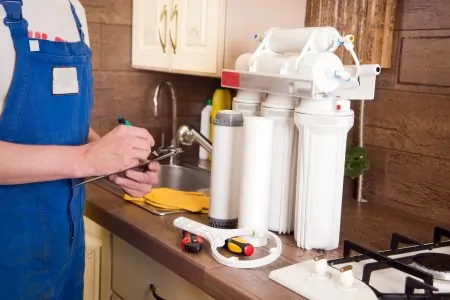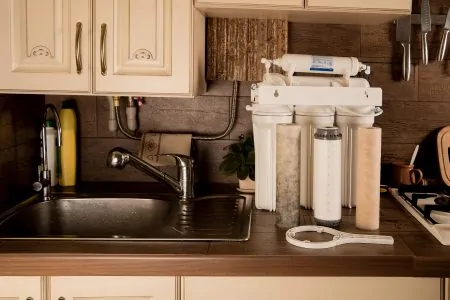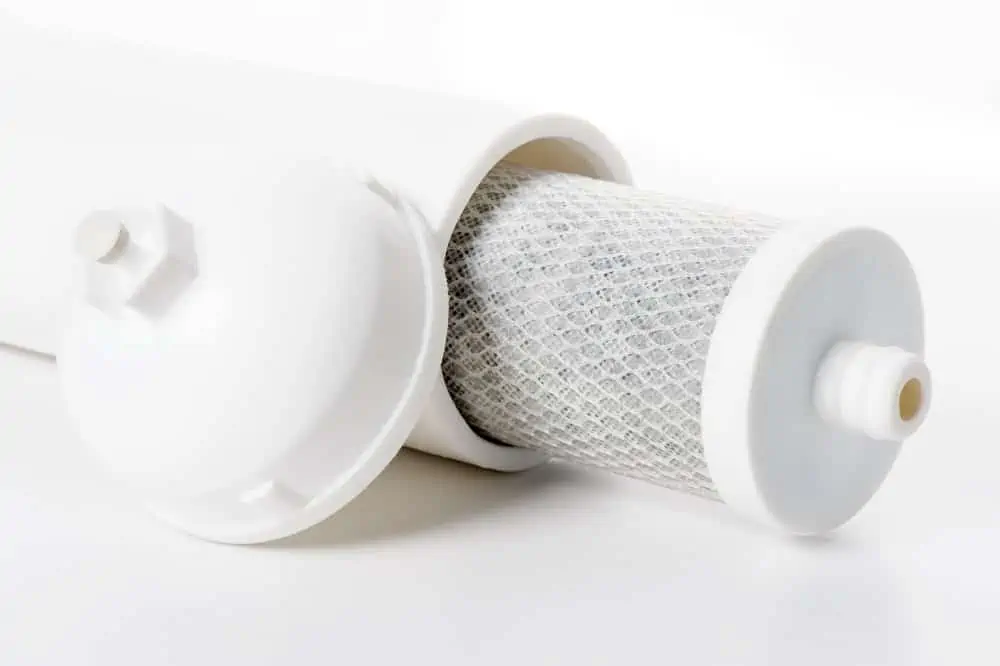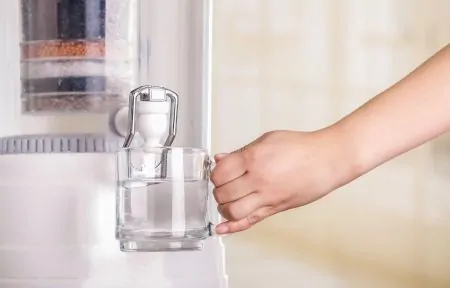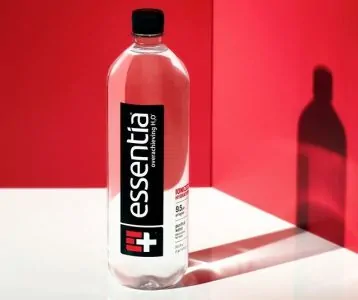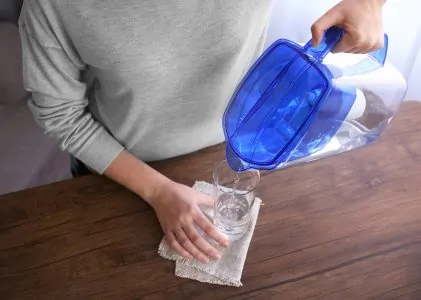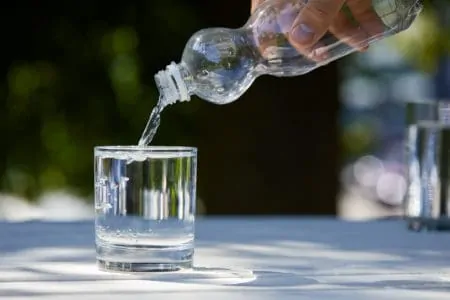If you have noticed unpleasant tastes or odors finding their way back into your water, it might be time to change your water filter. A dirty filter will be unable to clean your water effectively and could even make it more contaminated than it was before.
It isn’t always clear how often you should replace your water filter, with so many different filters now available from numerous brands. How frequently you should change it will also be influenced by your local water quality.
To make sure you change your filter on time, this article will explain how often to change your water filter based on its type. We will also describe some telltale signs that you might need to replace your filter more frequently.
Key Takeaways
- Change water filters regularly: Different filter types may need replacement every 3-12 months, depending on usage and water quality.
- Watch for signs of a bad filter: Unpleasant tastes, odors, discolored water, or decreased water flow rate indicate a need for a change.
- Consider local water quality: Areas with contaminated water may require more frequent filter replacements to maintain effectiveness.
- Keep filters clean: Regular maintenance and timely replacements ensure clean, safe, and fresh-tasting drinking water in your home.
How Often to Change a Water Filter
Knowing when to change your water filter is crucial if you want to keep receiving clean drinking water. In this section, we will take a quick look at the main types of filters and how often they should be replaced. These are only guidelines and your filter might need replacing more frequently, depending on your water supply.
1. Refrigerator Filter
Refrigerator water filters are a convenient way to get clean, cold water straight from your fridge. However, failing to replace the filter regularly can result in unabsorbed contaminants and bacteria penetrating the filter. If this occurs, it will often lead to leaks, which could cause highly contaminated water.
How Often Should It Be Replaced?
Experts and manufacturers recommend replacing a refrigerator filter at least every six months. Like all types, how often to change a fridge water filter can vary based on usage and how contaminated your local water is.
2. Whole House Filter — Well and Municipal
As the name suggests, a whole house filtration system is a filter that cleans all the water that enters your home. This means you will receive purified water from every outlet, even appliances such as dishwashers and washing machines.
Whole house systems are an excellent option for homeowners with weakened immune systems as they effectively remove contaminants and bacteria from all the water in the home (1).
They are also common in households where tap water is otherwise too impure to use safely. Replacing a whole house water filter can be complicated and often requires the help of a professional.
How Often Should It Be Replaced?
It is recommended to change the sediment pre-filter every six months. However, some might require replacement every three months. This depends on whether your water source is municipal or from a well.
Homes with well water will require filter replacement more often as the water has a higher risk of contamination (2). How often to change a well water filter will vary greatly based on where you live.
3. Under Sink Filter
Under sink water filters are installed, unsurprisingly, under your sink. They are connected directly to your cold water line, so it is easy to see when to change them and to perform the maintenance.
This water is essential for your day-to-day life, so it is crucial to replace the filter regularly.
How Often Should It Be Replaced?
How often to change the water filter under your sink depends on your usage and water quality. In areas with more pollutants, the filter will collect more. As a general rule, it’s a good idea to replace it every nine to 12 months.
4. Countertop Water Filter
Countertop water filters are increasingly popular in the United States. These devices are compact, easy to install, and effective. They are also available with various types of filtration systems such as activated carbon blocks, alkaline, and even coconut-based shells.
They are directly connected to your faucet via a small hose and an adapter. The water is then filtered on-demand, and you can easily switch between filtered and unfiltered.
How Often Should It Be Replaced?
Countertop water filters are slightly different from other types. Some models do not feature a replaceable filter but instead, purify a fixed volume of water. For example, a unit might filter 10,000 gallons of water before it becomes ineffective.
Most countertop water filters require changing between three and 12 months. This is a broad range but it varies significantly depending on filter quality, manufacturer, and water quality. Some filters will have a transparent casing so you can see the status of the filter without removing it.
5. Faucet Water Filter
Faucet water filters are installed directly onto the spout. They filter water as it leaves the tap. These are widely used around the world to remove fluoride, lead, and other harmful substances.
They are easy to install and don’t require any complicated plumbing. The main drawback of faucet water filters is that they can significantly reduce the flow rate.
How Often Should It Be Replaced?
A large household will need to replace the filter more often; perhaps every three to five months. Smaller households should be able to replace the filter every six months.
6. Pitcher Water Filter
Pitcher water filters are practical and very user-friendly. They don’t require any installation, and you can enjoy purified water wherever you need it. These resemble regular water pitchers, except they consist of two parts: a filling reservoir and a holding tank.
You pour water into the top part, and it slowly runs through the filter. The most common filter used is activated carbon.
How Often Should It Be Replaced?
Experts and manufacturers recommend that a pitcher water filter cartridge is replaced at least every six months. If you use it multiple times per day, it will need to be replaced more often.
Tell-Tale Signs a Change Is Needed
How often to change a water softener filter can vary a lot based on your individual circumstances. Here are a few signs you should look for, regardless of which filter type you’re using:
- Unpleasant taste
- Bad odor
- Discolored water or filter
- Decreased water flow rate
We strongly recommend that you replace your filter before any of these symptoms become too apparent. If you notice a decrease in water quality, you are leaving it too long to change your filter.
FAQs
In Conclusion
Failing to replace your water filter can be an open invitation for more contaminants to enter your home’s drinking water.
How often you will need to replace your filter is determined by the filter type, the quality of your water supply, and how frequently you use it. The average lifespan of a filter is about six months but it is important to look out for the symptoms of a filter going bad, such as unpleasant odors and tastes, or discoloration.
Regularly replacing your water filter will keep it working as effectively as possible. This will ensure you have access to clean, safe, fresh-tasting water whenever you need it.
